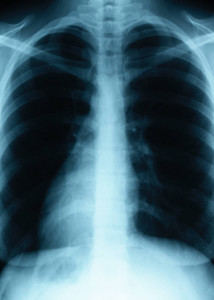Can Mold Exposure Cause Asthma?
One of the reasons effective mold treatment is so important is the negative health effects for the home or building’s occupants. The microscopic spores drift through the atmosphere where they can be inhaled with each breath. The greater the concentration, the stronger the effect.
Upper respiratory problems are a common result of interior mold growth. The spores irritate the linings of the throat and nasal passages causing symptoms such as coughing, sneezing and itchy, watery eyes. Intensity varies based on an individual’s particular sensitivity, which can become more acute with extensive exposure.
People with chronic lung illnesses such as asthma are at higher risk for mold allergies. Exposure can trigger an attack accompanied by coughing and wheezing. But can mold exposure actually cause an individual to develop asthma?
There is currently no evidence showing a direct link between mold and asthma in adults. However, a government-funded study has shown a correlation between mold exposure and the development of asthma in children. Out of 289 infants with an average age of eight months, 24 percent developed asthma by the age of seven.
The study focused on the homes’ Environmental Relative Moldiness Index, or ERMI. Researchers discovered that high ERMI values put the children at risk even when there was no visual evidence of mold.
Traditional mold remediation can further disperse mold spores, actually aggravating the problem. Our proprietary MoldExterm mold treatment encapsulates the affected surfaces for non-toxic removal. Don’t put the health of your family or others at risk. Visit our website to schedule an appointment for a free mold evaluation.

